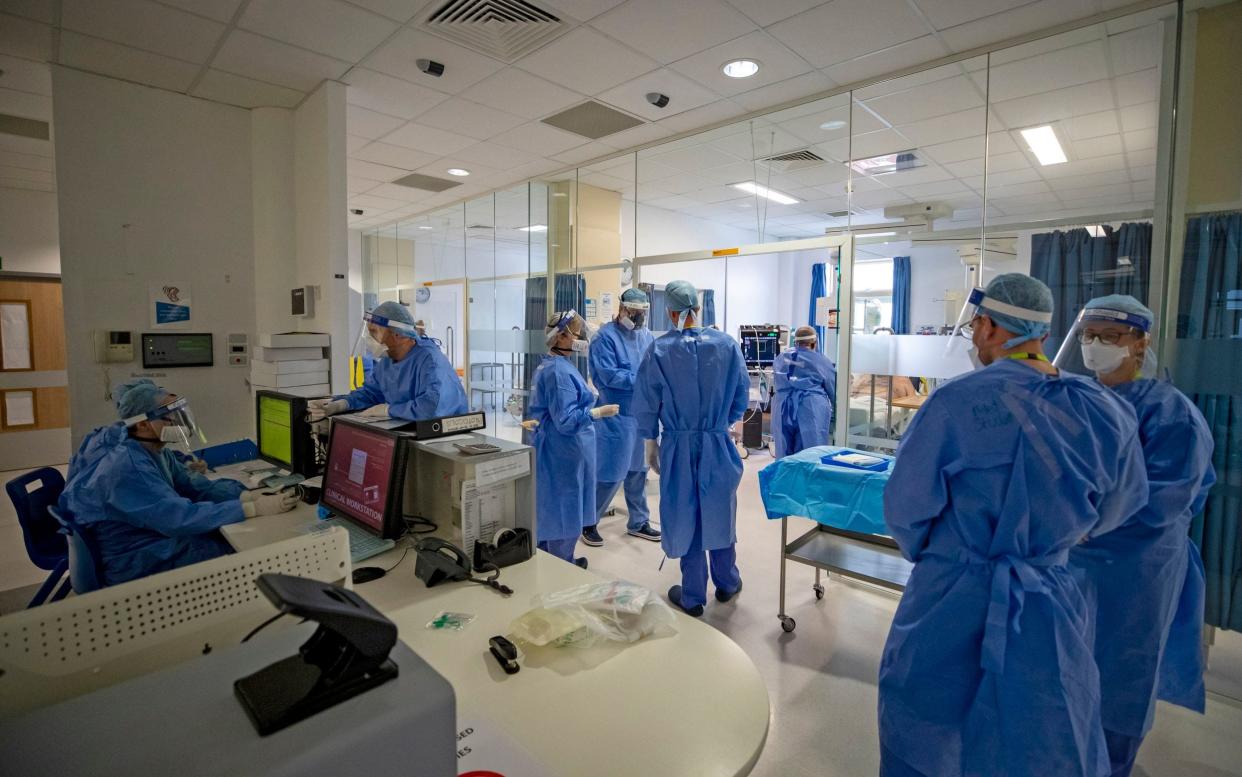Traumatised intensive care nurses 'sectioned' in wake of first wave


Intensive care nurses have been sectioned due to the “psychological trauma” they experienced during the first wave, it has emerged.
While others have received counselling for post traumatic stress disorder, and many have either taken sick leave, or remain off work, due to the impact of the pandemic on their mental health.
Nicki Credland, chair of the British Association of Critical Care Nurses, told The Telegraph a “significant amount” of critical care staff have experienced “mental issues” after what they witnessed over the last six months.
"We've spoken to nursing staff and medical staff ... who are needing post traumatic stress counselling, who have been sectioned under the Mental Health Act, who are now needing significant time off work,” she said.
In May, at the height of the first wave, NHS staff took more than 500,000 days off sick due to mental health issues, according to NHS Digital data.
The most commonly reported reasons for being off sick during that period were anxiety, stress, depression or another psychiatric illness.
Ms Credland said that staff are now displaying “signs of significant psychological trauma”.
ICU nurses tend to be “very personally resilient” due to their line of work and have “strong coping mechanisms”, she added, but a combination of factors during the first wave dramatically increased these normal pressures.
Staff were “going to work feeling unsafe” due to the initial issues with securing personal protective equipment (PPE), she said.

In April, three front line staff were pictured wearing clinical waste bags on their heads and feet due to a shortage of PPE, with others reportedly forced to share or buy their own.
"They were concerned that they were going to pass the virus on to their families, and they were concerned that family members would get it and potentially die,” Ms Credland added.
And, at the time, “they were looking after patients with the disease that we didn't understand”, which increased the stresses of the job.
Staff were also dealing with a “really high mortality rate”.
“We don't tend to see six or eight deaths on an intensive care unit, every single day ... the sheer volume of deaths we have seen has been really significant,” she said.
Ms Credland is carrying out research into the mental health impact of the pandemic on staff, and, so far, all 55 nurses she has interviewed across the country have experienced some level of "psychological trauma" and are either off sick, or have taken time off.
Heading into the winter, Ms Credland said the mental health impact on staff will “without a doubt” reduce staffing levels. “We'll see exactly the same with ward-based staff, with other professions as well...this is not just a nursing problem. This is an NHS staffing problem.”
Dr Daniele Bryden, vice-dean of the Faculty of Intensive Care Medicine, said during the first wave highly skilled nurses were redeployed from elsewhere in the NHS to work on the front line, but over the summer they returned to their normal roles.
“That is a concern going forward because we were supported by people who had intensive care training, or were rapidly upskilled in that first wave … [and we] almost certainly won’t have them over the winter,” she said.
“They’ve gone back to the other jobs that they are also needed to do.”


